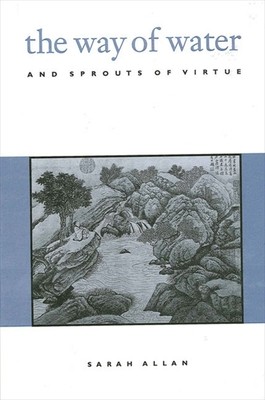
- We will send in 10–14 business days.
- Author: Sarah Allan
- Publisher: State University of New York Press
- ISBN-10: 0791433862
- ISBN-13: 9780791433867
- Format: 16.3 x 22.8 x 1.2 cm, minkšti viršeliai
- Language: English
- SAVE -10% with code: EXTRA
Reviews
Description
This book maintains that early Chinese philosophers, whatever their philosophical school, assumed common principles informed the natural and human worlds and that one could understand the nature of man by studying the principles which govern nature. Accordingly, the natural world rather than a religious tradition provided the root metaphors of early Chinese thought. Sarah Allan examines the concrete imagery, most importantly water and plant life, which served as a model for the most fundamental concepts in Chinese philosophy including such ideas as dao, the way, de, virtue or potency, xin, the mind/heart, xing, nature, and qi, vital energy. Water, with its extraordinarily rich capacity for generating imagery, provided the primary model for conceptualizing general cosmic principles while plants provided a model for the continuous sequence of generation, growth, reproduction, and death and were the basis for the Chinese understanding of the nature of man in both religion and philosophy.
EXTRA 10 % discount with code: EXTRA
The promotion ends in 23d.05:47:51
The discount code is valid when purchasing from 10 €. Discounts do not stack.
- Author: Sarah Allan
- Publisher: State University of New York Press
- ISBN-10: 0791433862
- ISBN-13: 9780791433867
- Format: 16.3 x 22.8 x 1.2 cm, minkšti viršeliai
- Language: English English
This book maintains that early Chinese philosophers, whatever their philosophical school, assumed common principles informed the natural and human worlds and that one could understand the nature of man by studying the principles which govern nature. Accordingly, the natural world rather than a religious tradition provided the root metaphors of early Chinese thought. Sarah Allan examines the concrete imagery, most importantly water and plant life, which served as a model for the most fundamental concepts in Chinese philosophy including such ideas as dao, the way, de, virtue or potency, xin, the mind/heart, xing, nature, and qi, vital energy. Water, with its extraordinarily rich capacity for generating imagery, provided the primary model for conceptualizing general cosmic principles while plants provided a model for the continuous sequence of generation, growth, reproduction, and death and were the basis for the Chinese understanding of the nature of man in both religion and philosophy.


Reviews